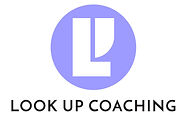
Several years ago, during a dinner date with my son, I received a valuable wake-up call regarding my lack of creativity. My son, known for his originality and unique ideas, challenged me to step out of my conventional thinking and explore new possibilities. This eye-opening moment ignited a desire within me to cultivate creativity not only for my personal growth but also to foster stronger connections with my children. Moreover, in today’s rapidly evolving business landscape, creativity and innovation have become essential for organizational success. In this blog post, I will share ideas for experimentation, curiosity, and risk-taking…even small actions can unlock individual and group creativity.
Challenging Mindset Barriers
Many individuals struggle to embrace their creative potential due to various limiting mindsets. Fear of looking silly, rigid adherence to tradition, a narrow focus on tactical problem-solving, or the self-imposed belief that we are simply not creative can all hinder the free flow of ideas. Overcoming these barriers requires a commitment to experimentation, embracing risks, and cultivating curiosity.
Building individual creativity begins with challenging ourselves without self-criticism. By exploring ideas that initially seem far-fetched, we open new realms of possibility. Asking questions and pushing the boundaries of our knowledge and comfort zones allows us to expand our creative horizons. Testing limits and taking calculated risks enable us to begin to unlock the true potential of our creative minds.
Finding Individual Inspiration Building individual creativity involves developing habits and seeking inspiration that fosters the creative process. You can journal creative thoughts and track fresh ideas encountered throughout your daily life. Immerse yourself in a variety of mediums, such as reading, watching movies, listening to music or podcasts, as a study of creativity. Engage your body in movement, whether through walking, meditation, or doodling, to stimulate different parts of your brain. Lastly, expand your horizons by connecting with diverse people, cultures, and environments as a conduit for fresh ideas.
Fostering Group Creativity
Innovation often thrives in collaborative environments that nurture a growth mindset. Celebrating and rewarding the exploration of multiple solutions is key. To unlock the collective creative potential within a team, consider implementing brainstorming sessions using mind maps and sticky notes. Try breaking the situation into small segments or, the reverse, exploring the problem from a big picture lens. Delve into alternate scenarios and iterate around each, inviting different perspectives through post-mortems and pre-mortems to analyze proposed solutions. Additionally, involve employees from different departments and levels of the organization to tap into a broader range of ideas and insights.
The Time Factor It is crucial to recognize that innovation and the creativity required for it often take time. Clearing our minds through practices like meditation, taking time away from work, and purposefully blocking time on our calendars can create space for fresh ideas to emerge. Author of The Vision Driven Leader, Michael Hyatt, says "it's not that we lack imagination, it's that we lack attention." Thinking unconventionally and developing alternative approaches to problems is a skill that must be cultivated and nurtured.
Conclusion If you've ever caught yourself saying, "I'm not creative," it's time to challenge that belief. That night out with my son, he gave me a simple starter suggestion, “order from the Build Your Own section of a restaurant menu instead of choosing from the preset options”. Taking small steps can be a glide path to expanding creativity. Adopt a creative approach to tackle existing challenges, changing client expectations, and future disruption for significant personal and professional growth.
Creativity is not reserved for a select few and it must be cultivated. Lead yourself well – start your creativity journey.
Facing challenges at work? Client demands, organizational changes, or internal conflict? A coach can help you gain perspective, share alternative approaches, and hold you accountable for clearing the space you need to overcome an obstacle. I'm available for a FREE introductory call.
%20copy.jpg)
Comments